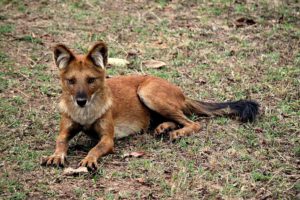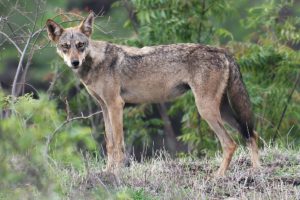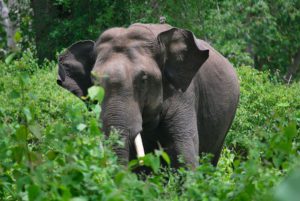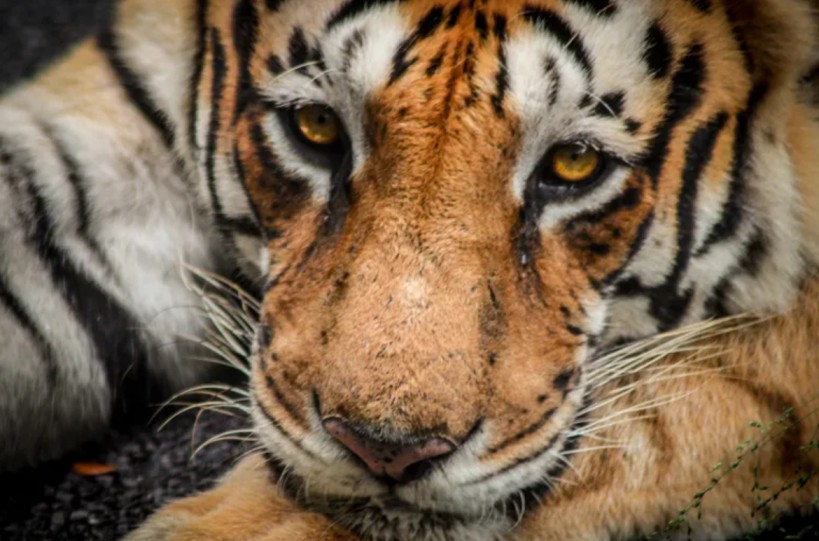ENDANGERED animals in India are those animals that are threatened with extinction due multiple reasons such as the loss of their natural habitat, excessive hunting by humans, life-threatening pollution or the spread of diseases. When animals become extinct, the planet doesn’t just lose an animal; the extinction of an animal impacts the lives of other plants and animals in that ecosystem. One example of this is the extinction of bees, which will lead to a loss of all plants pollinated by bees and the loss of all animals that eat those plants, impacting food that humans depend on to sustain life.
To understand the challenges faced by endangered animals and the communities that interact with them, expert NGOs across India are studying and monitoring the behavior, movement and challenges of endangered animals in India. Based on these findings, NGOs are devising solutions using innovative tech and reliable data to save animals faced with extinction.
Here are 5 NGOs saving endangered animals in India:
Vultures
The important job of stopping the spread of disease emanating from animal carcasses – goes to vultures. Vultures feast on the bodies of dead animals and this stops the bodies from accumulating and polluting the area, which keeps the environment clean and protects animal and human health. But the vulture population is declining because these birds are eating the flesh of livestock that has been injected with drugs – killing the vultures.

Centre for Wildlife Studies is an NGO that works with local communities in and around the Nilgiri Biosphere Reserve to reduce vulture deaths due to drug toxicity, specifically non steroidal anti inflammatory drugs that are used on livestock. The NGO maps vulture habitats and develops habitat sustainability models to implement long-term vulture conservation strategies in the Mudumalai-Sathyamangalam region. To support Centre for Wildlife Studies, you can:
Dholes
Dholes, called Asiatic wild dogs, are known for their unique whistling sound and are hunters that live in the forests and plains, specifically tea and coffee plantations. Dholes have an important role to play as predators in their ecosystem. These canines’ predatory behavior regulates the population of their prey, which are mainly ungulates, i.e., hooved mammals. But due to the loss of their habitat and prey due to human hunting, dholes are now amongst the endangered animals in India.

Wildlife Conservation Society – India is working to protect the population of dholes by mapping out areas for dhole conservation in agroforestry plantations. By identifying dhole-friendly spaces in and around plantations, the NGO aims to create a space where dhole populations can thrive. In engaging with local communities, the NGO ensures that dhole conservation efforts go hand in hand with human-animal coexistence. To support Wildlife Conservation Society – India, you can:
Indian Wolves
As apex predators, Indian wolves have the crucial job of controlling the population of their prey, which includes rodents. Indian wolves live primarily in grasslands, which are increasingly being converted for industrial purposes. The wolves are then pushed out to agricultural lands where they hunt amongst livestock. This causes conflict among humans who, in turn, hunt the wolves, reducing their population and causing them to become one of the endangered animals in India.

Centre for Wildlife Studies researches the behavior and movement of Indian wolves and uses the data to create wildlife management strategies. By using camera trapping, the NGO closely monitors the challenges faced by Indian wolves to minimize conflict with humans, caused by the loss of their natural habitat. This data serves as a foundation to work with local populations to adopt changed behaviors to protect the Indian wolf. To support Centre for Wildlife Studies, you can:
Elephants
Elephants are much loved mammals worldwide and serve an important purpose in maintaining ecosystems in the forests. As elephants move through the forests, their paths allow smaller animals to pass through. The seeds elephants distribute on their routes through the forest grow into new trees, promoting afforestation efforts. But poaching, habitat loss and human-animal conflict are threatening the elephant population, placing them on the list of endangered animals in India.

In the forests of eastern Odisha, people burn leaf litter such as kendu leaves and mahua flowers and this fire spreads into the forests where elephants live. The forest fires either kill the elephants or push them out of the forests and into human habitats, causing conflict. Wildlife Protection Society of India trains local women to stop the practice of burning leaf litter and adopting safer waste disposal methods. To support Wildlife Protection Society of India, you can:
Tigers
Tigers are one of the symbols of conservation worldwide and have long been a focus of conservation initiatives in India. Tigers maintain an important balance in the ecosystem by feeding on herbivores, preventing overgrazing. Furthermore, tiger reserves are a prime source of water for human populations and their green reserves protect against flooding and landslides. But poaching and the illegal wildlife trade pose the largest threats to tigers, causing their population decline.

Nature Conservation Foundation conducts education camps in villages around the Pakke Tiger Reserve in Arunachal Pradesh to train tiger conservation stewards. Since it is due to human behavior that tigers have become one of the endangered animals in India, the NGO holds training workshops to educate people living in close proximity to tigers on how to prevent conflict and build a relationship with the ecological environment. To support Nature Conservation Foundation, you can:
Save endangered animals in India
NGOs are using innovative and effective methods to research the changing patterns of endangered animals in India and implementing methods to mitigate the risks posed to these animals. To support the work of these NGOs this National Endangered Species Day, read more and make a charitable donation to save life on planet Earth.
–
Give’s mission is to “make giving bigger and better.” Give is the most trusted donation platform in India for fundraisers and crowdfunding campaigns. Through our technology solutions, we enable individuals and organisations to fundraise and donate to a cause, charity or NGO with trust and convenience. Give’s community of 2.7M+ individual donors and 300+ organisations supports 3,000+ verified nonprofits with 80G deduction and serves 15M+ people across India. Find a fundraiser today!

Shirley has been in the development sector for over 10 years and is passionate about making a change in the world around her, including adopting dogs and writing to make a difference.
Discover more from
Subscribe to get the latest posts sent to your email.

